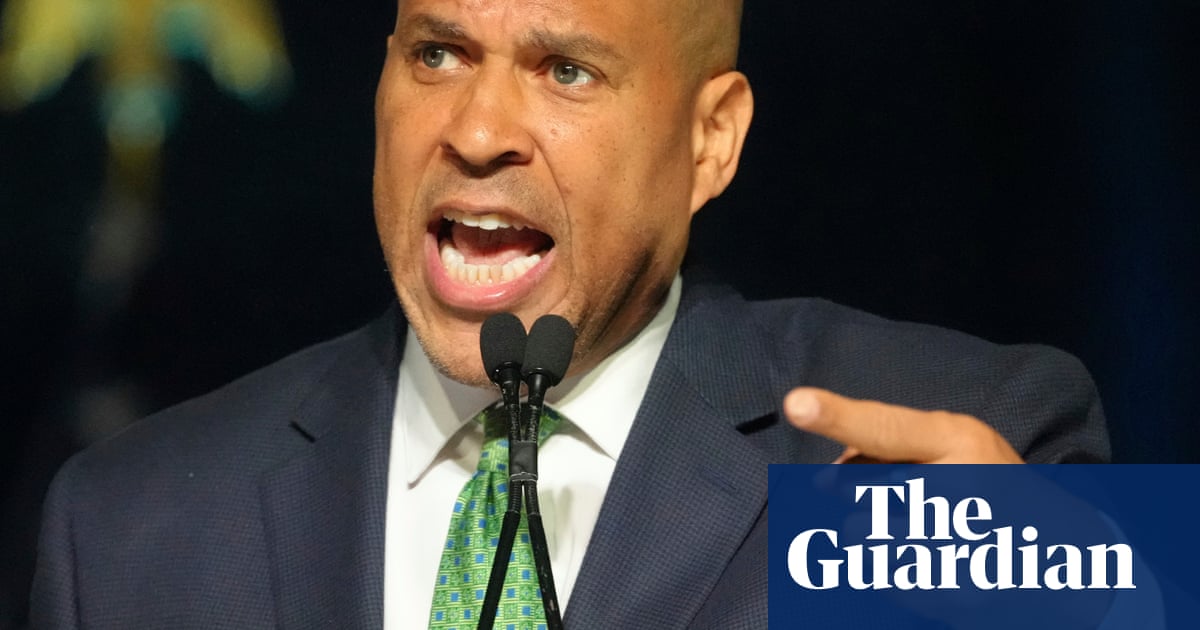Sam Fender’s third album ends with a track called Remember My Name. It’s clearly a very personal song, about its author’s late grandfather – even revealing the address of his council house, 11 Walk Avenue. The northern British references – “Chasing a cross in from the wing / Our boy’s a whippet, he’s faster than anything” – are amplified both by Fender’s Geordie vowels and the backing, provided by the Easington Colliery brass band. It’s all very specific and individual – you really don’t hear brass bands, or indeed the mention of whippets in pop very often – and yet Remember My Name seems to have something of the self-fulfilling prophecy about it. You can immediately imagine its soaring melody being sung en masse by a huge festival audience, which is, one suspects, precisely the destiny that awaits it.

It’s a reminder of the singularity of Fender’s rise. Both his 2019 debut Hypersonic Missiles and 2021’s Seventeen Going Under went platinum; the latter’s title track sold nearly 2m copies in the UK. He’s just announced a run of vast summer gigs, taking in the London Stadium and three consecutive nights at Newcastle’s St James’ Park: four shows that will see him play to the best part of quarter of a million people. This has happened despite the fact that his music is expressly political, and not in the usual platitudinous box-ticking way. It relentlessly picks away at the bleakest realities of northern working-class life, seldom a fashionable cause: you’d probably have to look back to Design for Life-era Manic Street Preachers – or even further, to the heyday of the Jam – to find rock musicians who made a similar agenda so commercially successful. He is probably the only pop star to have attracted both the praise of august socialist magazine the Tribune for his critiques of “the callousness of British neoliberalism” and the TikTok hashtag #toptierindiebois.
It’s an improbable success, and one which the contents of People Watching seem only likely to bolster. That colliery brass band notwithstanding, there’s a hint of folksiness about Wild Long Lie and Reign Me In, which feels like a fresh musical development, but not an entirely surprising one: in 2021, Fender helmed a BBC documentary about his love of 70s folk-rockers Lindisfarne. But for the most part, the album gently expands on Fender’s trademark sound, with the aid of co-producer Adam Granduciel. His band the War on Drugs share Fender’s audible love of Bruce Springsteen and tight, metronomic Krautrock-influenced rhythms, but their sound also boasts a faint haze of psychedelia and a greater sense of space, both of which are brought to bear on People Watching: in the electronic drone that underpins Arm’s Length, the slide guitar, feedback and synthesiser that arc around Wild Long Lie’s extended coda, the ominous, echo-laden atmosphere conjured on TV Dinner.
It’s all very subtly done, keeping the focus on Fender’s voice and songwriting; far from War on Drugs cosplay. It’s a smart move, because more than anything, People Watching reaffirms that Fender is a very good songwriter indeed: strong on melodies (the descending chord sequence of Nostalgia’s Lie is particularly nagging; the see-sawing tune of TV Dinner hypnotic), handy with a roaring, emotive, arena-friendly chorus, and exceptionally gifted with words. The title track shifts from prosaically conversational descriptions of a woman dying in a chaotic care home to something more poetic to gut-punching effect: “Above the rain-soaked garden of remembrance / Kittiwakes etched your initials in the sky / I fear for this crippled island.”
after newsletter promotion
Never lecturing, his lyrics take consistently surprising angles – Wild Long Lie is a self-loathing meditation on cocaine, not as a pop star’s indulgence, but an aspect of everyday post-pub life back in North Shields – and are sharp enough to confront head-on the dilemma facing any songwriter whose success is founded in keen observations of the everyday: that success, by default, removes you from the circumstances that inspired you in the first place. “I don’t wear the shoes I used to walk in”, admits Crumbling Empire, before enumerating the grim lot of his parents, and wondering aloud what might have happened had his musical career not taken off. On Chin Up Fender berates himself for struggling with celebrity, “entitled, idle and dumb”, while his friends are struggling to find jobs or heat their homes. Conversely, TV Dinner gives a compelling list of reasons he struggles in a music business from which working-class voices are increasingly excluded and in which he never meets anyone with the same lived experience as him.
Fender’s success means that the songs on People Watching are more complex than the bleak home town vignettes of Seventeen Going Under. But they’re no less powerful. Whether his gaze rests on his past, his present, or the gulf that lurks between them, there’s an urgency about what he has to say, its bleakness and realism at odds with the stadium-scale euphoria of the choruses. Whatever else Sam Fender’s unlikely fame may have changed, it hasn’t dimmed the unique potency of his music.
This week Alexis listened to
Andrew Rumsey – Collodion
Recorded in a Wiltshire church – and featuring what sounds like said church’s organ – the title track of singer-songwriter Rumsey’s latest album is fittingly hushed, haunted and shiver-inducing.

 3 months ago
62
3 months ago
62

















































